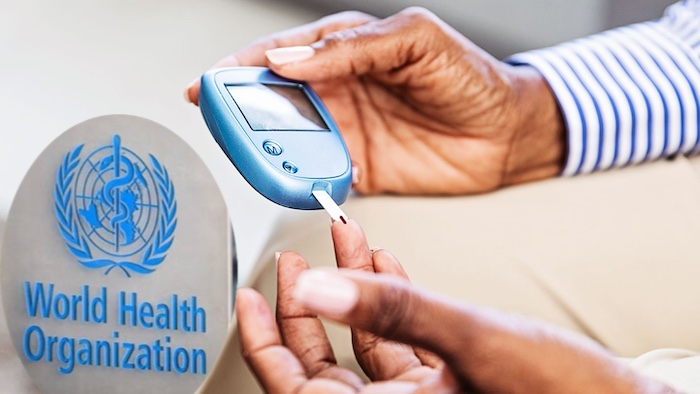WHO warn of surge in diabetes cases in Africa, urges immediate actions

The World Health Organisation (WHO) has projected a dramatic rise in diabetes cases in Africa, warning that the number of people living with the condition could soar to 54 million by 2045, the highest projected increase globally. This alarming statistic underscores the urgent need for comprehensive healthcare reforms to manage and prevent diabetes across the continent.
Currently, over 24 million adults in Africa are living with diabetes, and half of these individuals remain undiagnosed, according to WHO. If left untreated, the disease can lead to severe complications, including heart disease, stroke, kidney failure, nerve damage, blindness, and lower-limb amputations.
In her message for World Diabetes Day 2024, WHO Regional Director for Africa, Dr. Matshidiso Rebecca Moeti, emphasized the need for immediate intervention to combat the rising diabetes burden in the region. “Without urgent interventions, the number of people living with diabetes in the African region will rise to 54 million by 2045, posing a significant dual health and economic burden,” Dr. Moeti warned.
WHO attributes the rise in diabetes to several factors, including urbanization, unhealthy diets, and physical inactivity. As part of the global effort to address the diabetes epidemic, this year’s World Diabetes Day theme, “Breaking Barriers, Bridging Gaps,” encourages collaborative action to reduce the impact of the disease and ensure equitable access to care.
Dr. Moeti also highlighted Africa’s low investment in diabetes care, stating that the region allocates only 1% of its healthcare expenditure to managing diabetes. This lack of funding, compounded by weak healthcare infrastructure, contributes to insufficient care and prevention services across the continent.
The WHO is committed to addressing these challenges through a multi-sectoral approach that includes improving nutrition, increasing access to essential medicines, and offering mental health support. Dr. Moeti called on governments, healthcare workers, policymakers, and communities to collaborate in creating supportive environments that reduce stigma and provide access to affordable diabetes care.
In August 2024, African Member States endorsed WHO’s Framework for the Implementation of the Global Diabetes Compact (GDC) to strengthen diabetes prevention, diagnosis, and care, particularly at the primary healthcare level. WHO’s efforts focus on ensuring that diabetes is integrated into broader health systems and that proper training and resources are available for healthcare workers to manage the condition effectively.
With the rising diabetes burden in Africa, WHO urges swift action to mitigate the crisis and ensure that individuals diagnosed with diabetes receive the necessary care and treatment to lead healthy lives.





